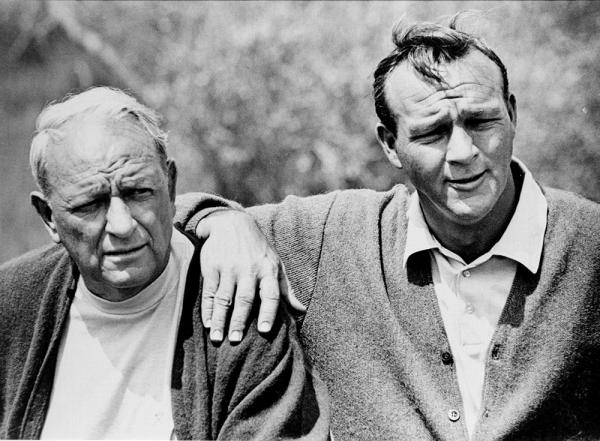
From: Richmond, VA
Company: Market Makers (Founder)
Favorite Sports Team: Washington Redskins
—
Market Makers
Bill Keeler is the founder of Market Makers, a small business sales development company based in Richmond, Virginia. Market Makers works with local and mid-sized organizations to grow their top-line revenues and does by offering different services to locally owned companies.
They offer fractional sales representative services for business owners that have small organizations and don’t have any formal sales experience or system setup. They’ve gone through mostly commission-only salespeople to no avail. These team members are pitching and selling wherever they can, dealing with clients, and are not doing any true tactical business development. They come in and provide a qualified salesperson on a part-time basis. Through that, Market Makers manages the individual, grows the team, and provides a jumpstart in their sales evolution.
Tell me, who is Bill Keeler?
“Growing up, my father was a civil engineer, but for a little while, he went on to open his own firm with a colleague. In those three or four years that he was a small business owner, he didn’t coach my little league team or come to my football games and worked late. I saw what it was like to be a small business owner and the life they lead. My first job out of college was working for my uncle, also a small business owner, and then got into radio advertising sales some years after college. I really hated the idea of being in sales and didn’t like the thought of being associated with the stereotypical salesperson. Through a number of experiences, I learned there was a vastly different way to do it. Over some time, I evolved my own methodologies and they were very effective. They were very contrarian to the traditional sales trainings and methodologies. I then took that into sales management, continued to learn how to develop teams and what that layer was about, and went into business coaching for eight years after that. While I did that, I learned about the life, traumas, opportunities, and elations of being a small business owner. I realized that I had a strong triangulation of experiences and a system I had built and proven to take out into the world and help local business owners have their highest and most consistent sales. That’s the whole reason we opened Market Makers.”
Are you noticing any major trends in sales?
” I think there’s a trend towards not trying to be salesy that is turning up which I love. I mean that sits at the center of (Market Maker’s) philosophies and are how we go about everything. Maybe people will stop being as unhappy about having to deal with salespeople as they have in previous generations. I think working with a person towards your fulfillment is better than ordering it online. We’ve created a whole universe where we can buy a car that we’ve never seen online, and they deliver it. If we don’t like it, we send it back! That is a screaming testimony saying “please don’t ever put a salesperson in front of me… I’d rather buy a car and send it back than talk to a salesperson”. That’s tragic, right?”
Something that you touch on a lot is the principle that there isn’t such a thing as sellers, only buyers. Could you elaborate on that?
“The salesperson, when they identify themselves as a seller and believe their role is to enter casket-selling, is taught they can get the other person to do something. So, selling has somewhat of an adversarial context to it.
We, as buyers, don’t think much of the average salesperson. We’re afraid they’ll be pushy and they’re going to have all these “gotcha” tricks and they’re really taught how to get past gatekeepers. When you’re a salesperson and you’re taught that, you do those things. My sales managers told me in broadcasting “We deserve our unfair share, so go do these eight things to get your unfair share” and I always thought “well, I got it”. I guess it was my fair share. The problem with that is, nobody wants to be on the other end of those behaviors and forces. So instantly, it’s adversarial because you must defend yourself if you’re the potential buyer. The reason there’s no such thing as selling is because it doesn’t matter how you go about it, no matter what a salesperson’s title, doesn’t matter what routine they go through, no matter what perspective they have, no matter what they do. Eventually, they’re done with their presentation. At that moment, everything shifts over to the buyer and the buyer can take a split second, the buyer can take a year, doesn’t make any difference. Everything from that point on is the buyer’s decision. It always was. If it wasn’t that, there would be no choice.
So, all the things and behaviors that a salesperson in traditional unconventional sales are taught to do takes that whole concept of choice out of it. And if you know that is ever-present at the moment that you could or could not receive a new client, it’ll change your behaviors one way or another.”
What are some pieces of advice you have for someone just entering sales?
“I would say the first thing is if you’re just getting into sales, no matter what, keep going forward. It’s so easy to get so beat up and discouraged. Expect to have to work your hardest in the first year. You’re building a machine that you should have perpetuate on itself. When the hard stuff comes, do not stop. Keep doing it. You have to make 25 more calls and that’s on your plate? No matter what’s happened, make the 25 calls. Great salespeople are successful in part because they respect the requirement of forward momentum. The other thing is, only call on and spend your time with people who make the most sense to spend your time with. Don’t fall into the “it’s a numbers game.” It’s a numbers game because people just try to give all their stuff away to anybody then they try to sell to the wrong people, and they waste time. Don’t waste time. Own your time management by only dealing with people you should be dealing with, never stopping, and always being collaborative.”
What sports figure do you think best represents you as a sales professional?
“I’m a little old school and I also like golf a lot. I actually think Arnold Palmer.

Arnold Palmer was a master at consistency, and he was just ever present. He clearly worked hard. He was unconventional and had one of the ugliest swings in golf yet was one of the greatest golfers of all time. He was also amazing at pulling anybody around him into his game. I mean, people that he was competing against were inspired to be walking up the fairway with the guy. I think he never took his eyes off the idea that everything he was doing mattered and it was still just a game.”
In sports, you may see athletes have certain routines or rituals before going into each game. Do you have anything like that whenever you’re getting ready for your day or going into a big meeting?
“I used to be superstitious when I was in high school and before playing in golf tournaments I had all these ridiculous rituals. I’d only play with green tees and I’d only have a certain number of tees in my left pocket. When I got into sales, I would pay a lot of attention to my energy. Reviewing my day, depending on who I was seeing, I would choose my “uniform” for the day. I chose the shirt, tie, suit, or the jacket or whatever the combo was that made me feel right for that day or for those meetings. I popped in my CD and jammed to Born to Run before I went in. I wanted to be at my maximum peak of energy and power. I realized later that, while all that’s great, it’s slightly artificial. Now, before meetings, I run through how the play could go. Like a quarterback when he gets to the line of scrimmage, he’s got the play called, but he’s got to look at the defense one more time and make sure. My ritual now, if ritual is the right word, is to just make sure that when I’m on my way to the appointment, I’m thinking about the things that really matter to this person. Am I prepared to answer their questions? Am I prepared for the things I know they are obstructive about? Am I going to be able to manage that or am I going to rear up and show my fear or my angst? I now get myself back into a calmer place.”
Selling in itself is something that requires a lot of time, energy, and mental capacity. How do you stay sane through it all?
“I think it comes back to perspective. I’ll tell you a story. I was managing this team member in radio before I went to coaching. This guy named Alan and I were driving to an appointment with a new client that he’d been working on for a little while. I knew it wasn’t going great for Alan. He was approaching the “you’ve got 30 more days to make it” conversation. We were driving down the road and Alan’s not talking, he’s looking at the window, he’s tapping his head, and he just turns to me and says “Bill… we need this client.” I said “Alan, we don’t need this client. I promise if we turn on the radio station tomorrow, their radio station will still be playing.” I said, “It would be nice to have this client.”
I accidentally taught myself something in that moment that I’ve used ever since and have coached and trained on and we make it part of our work. No one client matters that much. We get all jacked up about it, but I think that’s what takes the energy out. We make this meeting, client, or proposal out to be so vitally important to our sense of who we are.
I think one of the greatest things that salespeople and athletes can do is not make every play the be-all and end-all. It’s a game. You’ve got 18 holes, you got four quarters, you have lots of time and lots of chances. Do your best. Let it be what it is. Grow between plays and get better at the next shot. I think that has helped me be better and manage the strain.”
Do you remember the first thing you ever sold?
“I have this vague memory of trying to sell holiday cards to neighbors. I was 8 and I remember walking around the neighborhood, and nobody bought anything. Looking back, they didn’t even take pity on the kid trying to make a dollar a card. The cold hard world slapped me early. That’s probably part of the reason I never wanted to go into sales because people always said sales is hard. I think the first thing I really truly successfully sold was my first radio campaign. I think it was terrible before that. Yeah… I don’t have a great answer to that it’s a tragic answer. I’m the little kid in a bad sitcom. Everybody said no.”
One of your favorite topics to speak on is sales management. What do you think is the greatest difference between a good sales manager and a great sales manager?
“A lot of sales managers believe they can control the outcome of the whole team. Like, that’s their job, and it’s actually not. That’s the hard part about going from sales to sales management. You lose a lot of independence and autonomy. You’re out in the street, doing your thing, and setting your schedule. The next role, you are at a desk, in meetings, but you can’t control that so much. You can help a salesperson do their best and be prepared for whatever event, next meeting, or presentation and then they’ve got to go do it. It’s a little bit like parenting and you can’t help your kids play better on the court. You have to be really okay with that. You must be ready to manage whatever they go through to keep them measured and tactical for the next event. I think the worst sales managers are the ones that take positions of power and put it into the conversation. Anybody can collaborate when a salesperson comes back with a big victory. Everybody high fives and the salesperson thinks it’s their doing and the sales manager thinks it’s their doing and ultimately that’s not really a team. The greatest sales managers help the other person be their best or lift them when they’re not their best, but it’s still on the salesperson.
There’s one other key component to great sales management as far as being a facilitator for victory. That is time. One of the most difficult things that separates sales managers from great sales managers is the ability to know what to prioritize. Your team is your priority.”
What do you think is the best way to motivate salespeople as individuals and as a unit?
“You have to manage each person differently. You have to manage them as they are because they’re all unique. You have to manage the whole with continuity. You can’t have people that have freedoms and different rules. Everyone’s got the same platform to play on. The way to really move people is to figure out what’s really important to that salesperson. Why are they there? What’s their purpose? You’re trying to aid them in the success that is solely about what they want for themselves.
99 times out of 100, if that’s the way you’re dealing with every salesperson, you’re going to have really good results out of each person. That’s the key. Find your employee’s real purpose. Ask what they want out of making more sales and then say, “Great, then I’ll help you do that.” “
What motivates you, Bill?
“I’m totally motivated when I can help be part of a transition in somebody’s world. When we see a transformation that someone learned something, it’s exciting. I love walking away knowing I made them different just the way they wanted. It’s powerful. I love it.”




